Iran Bags 3 Greco Golds on Opening Day of Junior Asian C'ships
Tuesday, July 9, 2019 - 15:06 By United World Wrestling Press

CHON BURI, Thailand (July 9) - Iran claimed three of the five gold medals in Greco-Roman on the opening day of the Junior Asian Championships in Chon Buri, Thailand.
Winning gold medals for Iran were Mohammad NAGHOUSI (77kg), Hasan FOROUZANDEH GHOJEHBEIGLOU (87kg) and Aliakbar YOUSOFIAHMADCHALI (IRI). The other two gold medals were won by India and Kazakhstan. 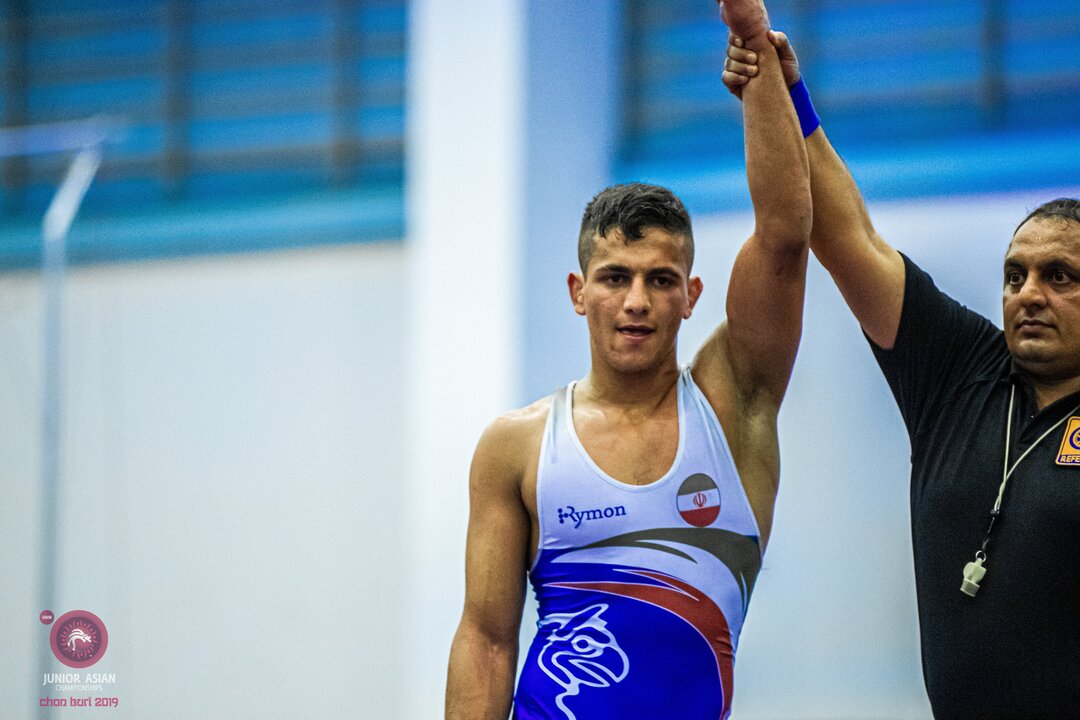
Iran's first champion, Naghousi, came back to defeat Akylbek TALANTBEKOV (KGZ) 6-3 at 77kg in a battle of cadet world bronze medalists. Talantbekov controlled the first period, scoring a passivity point and then a gut wrench to grab a 3-0 lead at the break. With just over a minute remaining, Naghousi scored a takedown to cut the deficit to 3-2 before executing a four-point throw to go up by three and eventually give him the victory. Naghousi won a gold medal at the Cadet Asian Championships last year.
Forouzandeh Ghojehbeiglou topped Meirbek KORDABAY (KAZ) 5-1 to earn the gold medal at 87kg. Kordabay scored the first point of the match off a passivity, but the Iranian dominated the rest of the way. He scored a takedown midway through the first period to go up 2-1. Forouzandeh Ghojehbeiglou added to his lead in the second period, scoring a point off a passivity before adding two more points off a gut wrench. 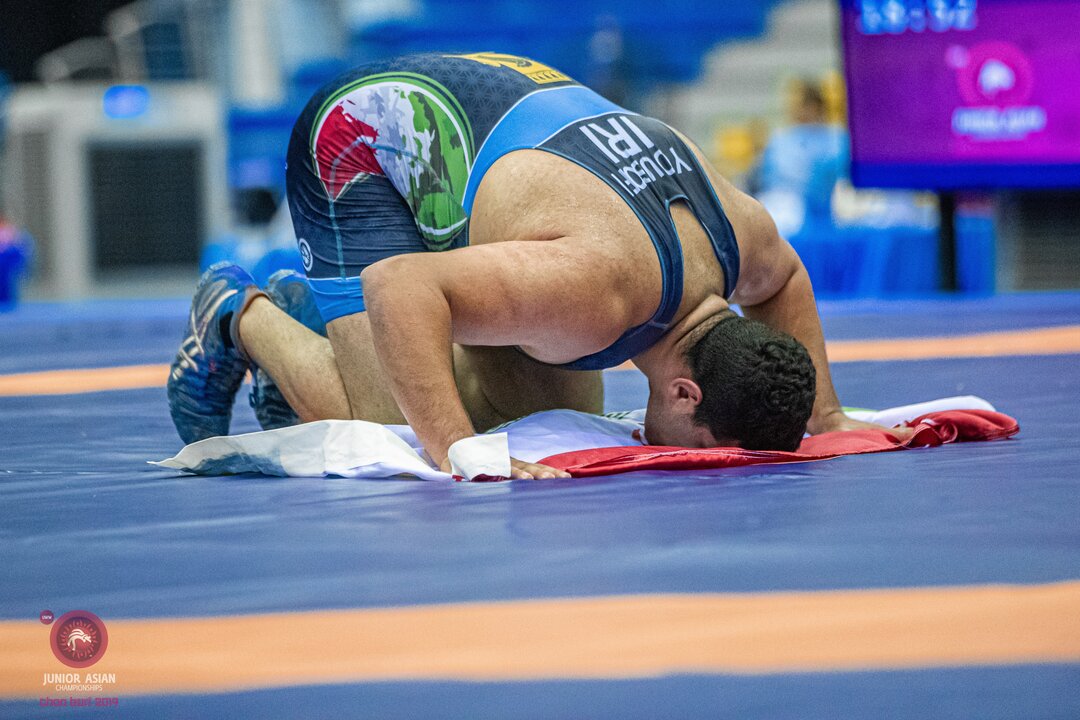
Yousofiahmadchali, a U23 world bronze medalist, dominated Aawesh AAWESH (IND) in the gold-medal match at 130kg. The Iranian heavyweight scored points off a passivity and a step out to go up 2-0 before throwing Aawesh to his back late in the first period to secure a fall. 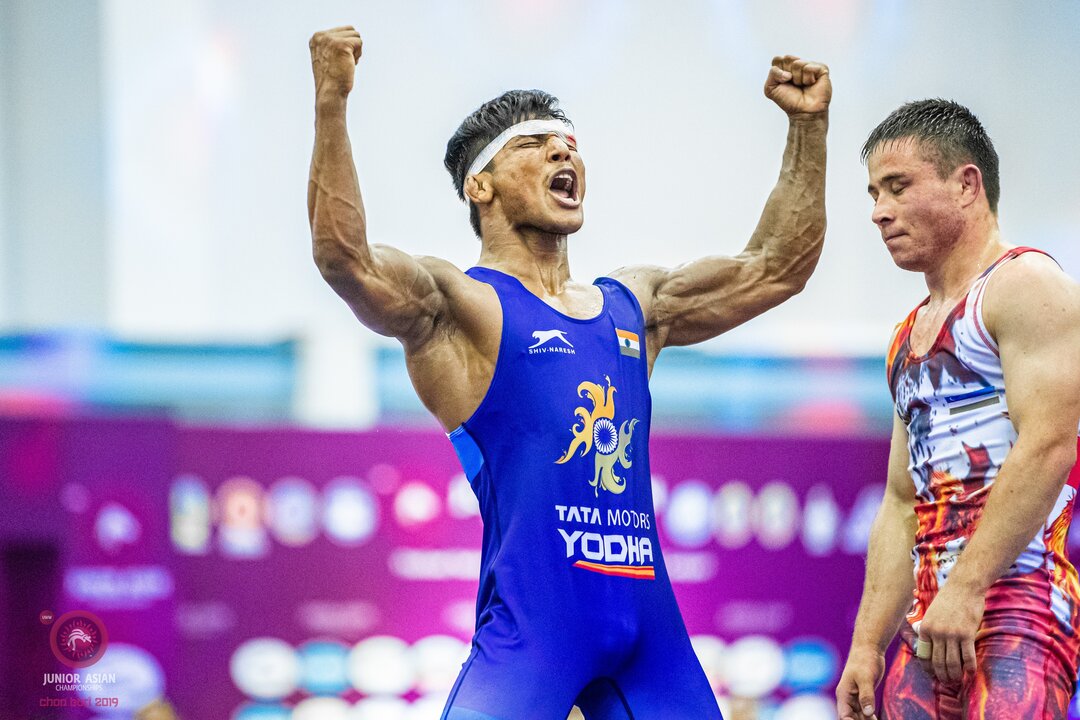
Junior world bronze medalist Vijay VIJAY (IND) improved on his Junior Asian Championships finish from a year ago, winning the gold medal at 55kg after earning a silver last year . He shut out past cadet world bronze medalist Ikhtiyor BOTIROV (UZB) 4-0 in the gold-medal match at 55kg. Vijay scored a passivity point in the first period, and then added three step-out points in the final two minutes of the match.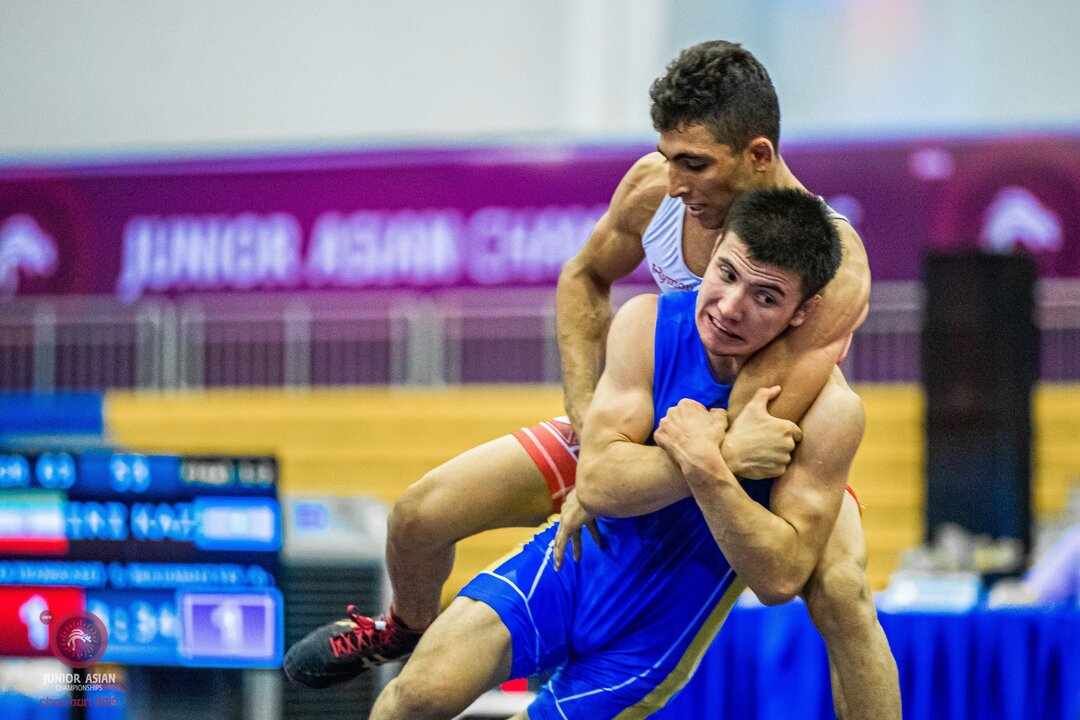
At 63kg, Assaukhat MUKHAMADIYEV (KAZ) held on to edge Saeid ARJMANDDASHTAKI (IRI) 2-2 on criteria in the gold-medal match at 63kg. Arjmanddashtaki scored first with a step out, but Mukhamadiyev responded with a step out of his own and took the criteria lead into the break. The Iranian retook the lead in the second period, scoring off a passivity, but just like in the first period, Mukhamadiyev would respond. He scored off a passivity with just over a minute remaining to take the lead and held on for the criteria win.
The five remaining Greco-Roman weight categories, 60kg, 67kg, 72kg, 82kg and 97kg, will be contested Wednesday at the Junior Asian Championships, with action set to begin at 10 a.m. local time.
RESULTS
Greco-Roman
55kg
GOLD - Vijay VIJAY (IND) df. Ikhtiyor BOTIROV (UZB), 4-0
BRONZE - Donghyeok WON (KOR) df. Koichi TSUTSUMI (JPN), 2-1
BRONZE - Zhanibek ISSAKHANOV (KAZ) df. Sahatsawat PHUANGKAEO (THA), 9-0
63kg
GOLD - Assaukhat MUKHAMADIYEV (KAZ) df. Saeid ARJMANDDASHTAKI (IRI), 2-2
BRONZE - Ryota KOSHIBA (JPN) df. Javokhirbek SAMATOV (UZB), 8-3
BRONZE - Sangjun PARK (KOR) df. Nursultan MAKHMUDOV (KGZ), 5-4
77kg
GOLD - Mohammad NAGHOUSI (IRI) df. Akylbek TALANTBEKOV (KGZ), 6-3
BRONZE - Nao KUSAKA (JPN) df. Zhalgasov DAULET (KAZ), 8-0
BRONZE - Dilshod OMONGELDIYEV (UZB) df. Bahetijiang KELAN (CHN), 7-0
87kg
GOLD - Hasan FOROUZANDEH GHOJEHBEIGLOU (IRI) df. Meirbek KORDABAY (KAZ), 5-1
BRONZE - Ryohta NASUKAWA (JPN) df. Han LEI (CHN), FALL
BRONZE - Kumar SUNIL (IND) df. Azat SALIDINOV (KGZ), 10-7
130kg
GOLD - Aliakbar Hossein YOUSOFIAHMADCHALI (IRI) df. Aawesh AAWESH (IND), FALL
BRONZE - Alibek SARSENGALIYEV (KAZ) df. Ilyosbek GULOMJONOV (UZB), 8-0

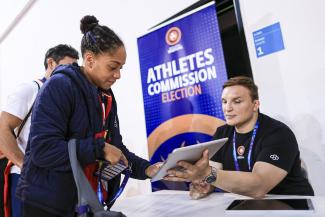
Share your thoughts.
Comments